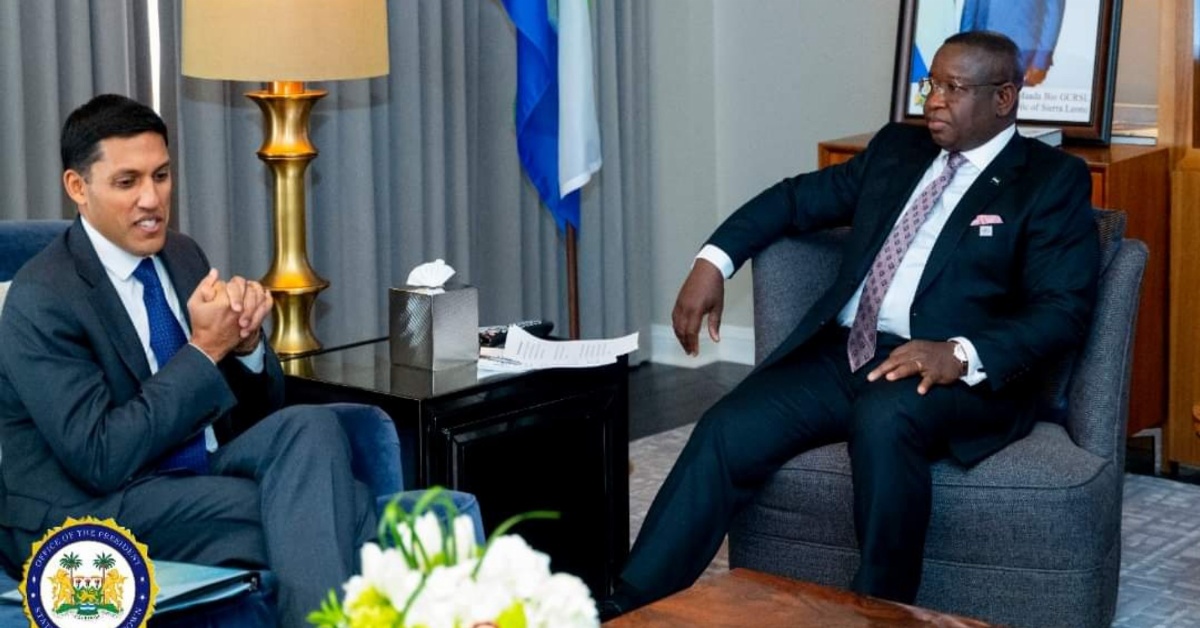His Excellency President Dr Julius Maada Bio has met Dr Rajiv J. Shah, President of the Rockefeller Foundation, a private American philanthropic funding organisation, to continue discussions around the possibilities of a sustainable energy market in Sierra Leone.
This meeting, on the margins of the US-Africa Leaders Summit, comes after the Government of Sierra Leone and the Rockefeller Foundation, through the Global Energy Alliance For People and Planet, GEAPP, signed an MOU in May 2022 to collaborate around increasing access to electricity and accelerating the energy transition in the West African nation.
Before that mission and the meeting on Wednesday, the Foundation had also undertaken several missions in the country to assess the energy challenges and meet with key players so that constructive and realistic energy strategies could be developed for the country.
President Bio also underscored the need to focus on agriculture while making a case for energy intervention to be prioritised to support agriculture, noting that these sectors would be catalytic for industrialisation with a focus on rural communities.

“The Government and GEAPP should collectively come up with projects that will ensure effective development. Based on this mission, a Sierra Leone National Energy Transition Programme geared towards the Rockefeller Foundation (GEAPP) was developed.
“The vision of this Programme is within the next 7 to 10 years, this alliance should lead to new or improved electricity access for at least 1 million people through driving increased investments in Grid-connected renewables, distributed renewable energy (DRE) and corresponding investments in productive uses of electricity, particularly in the rural areas,” he said.
President Bio also emphasised that the goal was to produce 300MW in new regeneration and 600 mini-grids, which would help to reduce carbon emission by 1.2 million tons of GHG annually and create about 1.3 million new jobs enabled by renewable sources.

“Another focus area is to power up rural communities. This will include the reduction of mini-grid tariffs to less than US$0.30 to improve affordability, power agriculture, provide agricultural and enterprise equipment and support small businesses.
“Key Projects: Supporting Betmai – 27MW hydro project to reach financial close; supporting a tariff buy-down pilot project; assisting 7,000 women located in 20 mini-grid sites to start or expand over 300 businesses enabled by renewable energy with support from CARE,” he concluded.


 Post a comment
Post a comment









Comment(s)
Disclaimer: Comments expressed here do not reflect the opinions of Sierraloaded or any employee thereof.
Be the first to comment